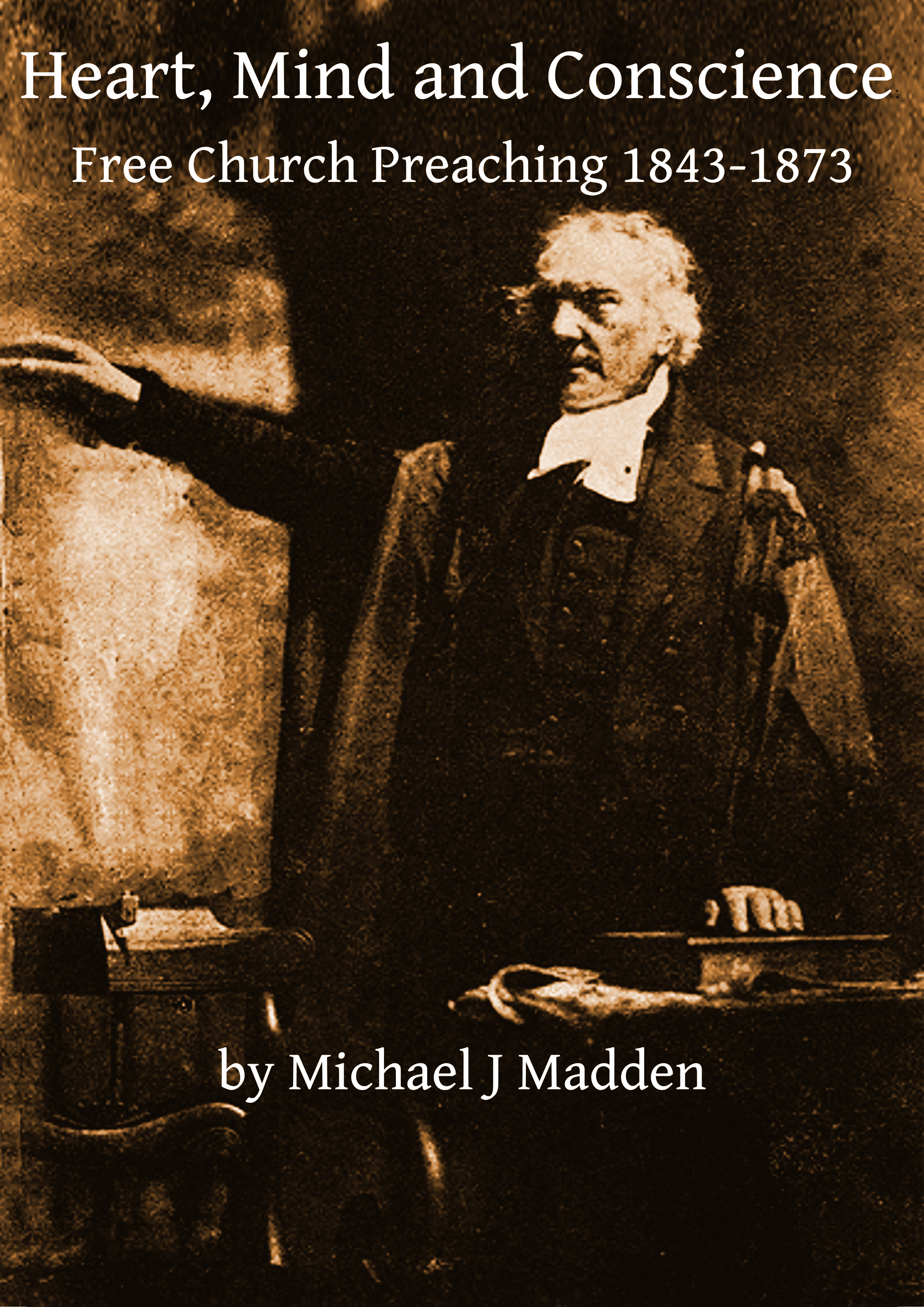
I haven’t got a book, yet, but I think I have a cover for it


Rejoice with me! I have found the reference to the Rev. Robert Gordon that I had lost. It is in D. Sage’s Memorabilia and Domestica (1899) p. 169.
The Rev. Donald Sage recalled Gordon when he was still teaching Mathematics at the Perth academy:
“This Mr. Gordon also delivered a discourse — a close and most consummate piece of reasoning — but the most perfectly free from the slightest allusion to the gospel of anything of the kind. Afterwards he became minister of Kinfauns, in the neighbourhood of Perth, and there, through the instrumentality of his excellent wife, he experienced a thorough change of views and of heart. He is now advanced in years, and is the eminent and pious Dr. Robert Gordon of Edinburgh.”
Mr. Gordon’s excellent wife’s name was Isabella.
No one has asked, but I thought that I’d tell you anyway. The book’s working title is, Heart, Mind and Conscience: the preaching of the Free Church 1843-1873.
So far, I’ve written about 15000 words. This means, that the introductory chapter (a potted history of the reformed church of Scotland from 1560 to 1843) has been roughed out. The second chapter looks at advice given to trainee ministers on sermon making during the 18th century, and the capacity of the common people to understand those sermons. The third chapter reviews the sermons of an unconverted minister of the 18th century, and provides a brief insight into the evangelical sermons of that period. The fourth chapter begins the review of Free Church preaching with the sermons of the Rev. Thomas Chalmers, who was, for the first 10 years of his ministry, an unconverted person. His pre- and post-conversion sermons are very different from each other. By the grace of God, Chalmers became the sort of minister that he once despised. Rough versions of all these chapters are now written.
Presently, I am working on the fifth chapter, which reviews the sermons of the Rev. Robert Gordon (1786-1753). He too, it seems, was ordained to the Christian ministry before he was converted. I’ve ‘heard’ that his believing wife was instrumental in bringing him to a right understanding of the gospel — I’m still looking for the reference (I know that I’ve seen it, somewhere). I have no Free Church sermons from him, only those first published in 1825, but his preaching was used by God to convert — during the 1820s and 30s — many ministry students who later became Free Church ministers. I suspect his ‘method’ of sermon making influenced the character of the later sermons by these men. After this chapter is finished, I intend doing chapters on the sermons of the Revs William Cunningham, Robert Candlish, John Duncan, Thomas Guthrie, and Robert Rainy. Let’s see how far I get.
Looking for a reliable building construction company to help renovate or build your dream home? Look no further than Samjades Building Construction!
Philosophy for today
-Reviews, Advice & News For All Things Tech and Gadget Related-
The heavens are telling the glory of God; and the firmament proclaims His handiwork. Psalms 19:1
Life is all about being curious, asking questions, and discovering your passion. And it can be fun!
Friend of A Jewish Carpenter
BY GRACE THROUGH FAITH
Words to Encourage, Inspire & Empower
All Aspects of Life looked at through a Biblical Worldview
By Sandra Js Photography - Make the rest of your life the best of your life.
Philosophy. Theology. Everything else.
These messages are not ordinary. They are life changing revelations. evangelistchilavert@gmail.com
Be Encourage
Daily Thoughts and Meditations as we journey together with our Lord.
Truth based on facts
For millennials seeking the abundant life of Jesus